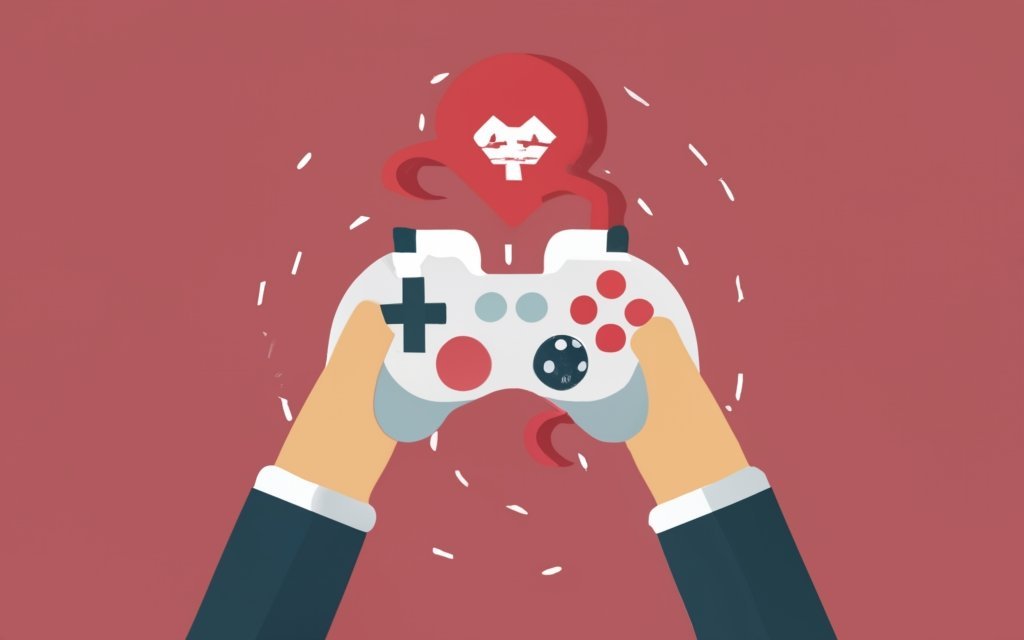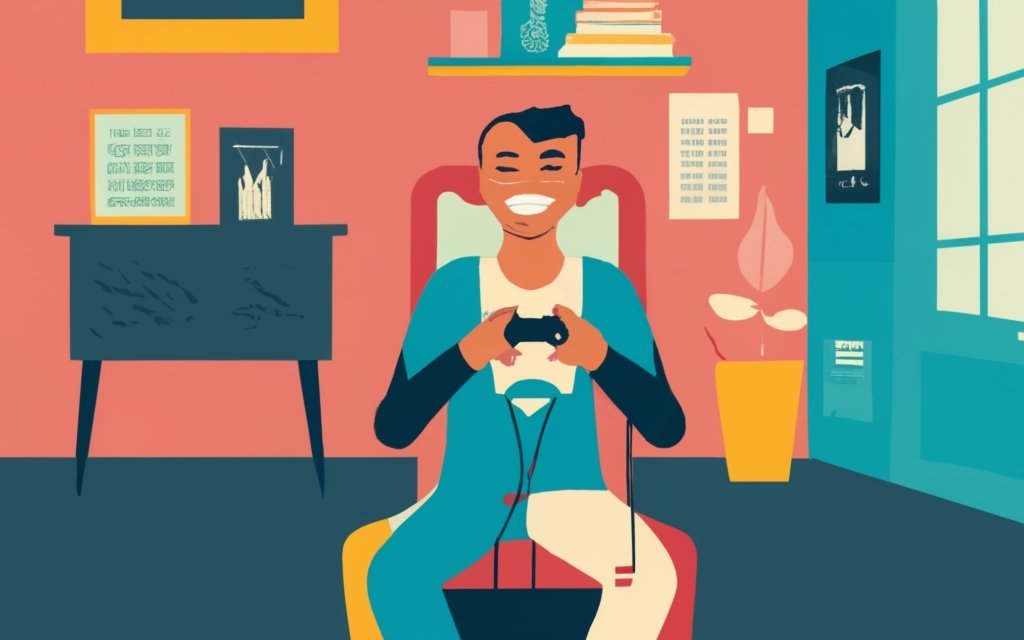The increasing popularity of video games, particularly those with violent content, has sparked a significant amount of research into their potential impacts on players. One of the most concerning areas of focus is the potential desensitization of players to real-life violence, a phenomenon that could have far-reaching consequences.
This article aims to provide a comprehensive review of the current understanding of this issue, drawing on a range of research findings to shed light on the potential impact of video game violence on desensitization to death.
Desensitization, the reduction of cognitive, emotional, and/or behavioral responses to a stimulus, is an automatic and unconscious phenomenon often experienced in everyday life. Exposure to violent media, especially violent video games, may cause desensitization to real-life violence.
This desensitization to violence blocks empathy which is needed to trigger the moral reasoning process that triggers prosocial responding. This article will explore the mechanisms of desensitization, the potential effects on players’ behaviors, and the implications for parents, educators, and policymakers.
The article will also highlight the need for further research into this issue, as well as the importance of promoting responsible gaming practices. It is our hope that this review will contribute to a better understanding of the potential impact of video game violence on desensitization to death, and to inform discussions on how to mitigate these potential negative effects.
Definition of Violent Video Games and Desensitization to Violence.
Violent video games are interactive digital games that often involve players engaging in violent actions against other players or non-player characters (NPCs). These games are designed to simulate real-world violence, often involving graphic depictions of physical harm, destruction, and death.
The goal of these games is to provide an immersive and engaging experience for the player, typically through achieving certain objectives or overcoming challenges.
Desensitization to violence refers to a psychological state where a person becomes less sensitive to violent stimuli. This can manifest in various ways, such as a reduced emotional response to violent content or an increased tolerance for violence. Desensitization to violence can occur due to chronic exposure to violent content, leading to a normalization of violence and a diminished sensitivity to its impact.
The Increasing Accessibility and Popularity of Video Games Among Children.
The popularity of video games among children has been on the rise in recent years. This is largely due to advancements in technology and the increasing accessibility of gaming platforms. Today, children can easily access a wide range of video games, many of which are violent in nature. These games are often marketed towards children and young teens, making them easily accessible and appealing to this demographic.

The increasing accessibility and popularity of violent video games among children is a significant concern. Children, particularly those in the early stages of development, are more susceptible to the impacts of violent content. Chronic exposure to violent video games can lead to desensitization to violence, potentially normalizing and trivializing violence in their minds.
The Potential Detrimental Effects of Violent Video Games on Desensitization to Violence.
Research has suggested that chronic exposure to violent video games can lead to lasting harmful effects on brain function and behavior. These effects include changes in brain activity patterns, reduced empathy, and increased aggression. In particular, violent video games can desensitize players to real-world violence, leading to a normalization of violence and a diminished sensitivity to its impact.
Moreover, violent video games can contribute to the development of aggressive behavior. This is often due to the games’ mechanics that reward aggressive actions, leading players to associate violence with success and positive outcomes. As a result, players may develop a preference for violent actions and a disregard for the consequences of their actions.
the increasing accessibility and popularity of violent video games among children, coupled with the potential detrimental effects of these games on desensitization to violence, present significant concerns. It is therefore crucial to promote responsible gaming and to encourage the development of empathy and respect for others, regardless of the type of video games that are played.
Effects of Violent Video Games on Desensitization.
A. Psychological Desensitization to Real-Life Violence.
Violent video games can lead to psychological desensitization to real-life violence. This process involves the reduction of cognitive, emotional, and/or behavioral responses to a stimulus, often experienced in everyday life.
Exposure to violent media, especially violent video games, may cause desensitization to real-life violence. This desensitization to violence blocks empathy, which is needed to trigger the moral reasoning process that triggers prosocial responding.
B. Emotional and Physiological Desensitization to Violence.
Emotional and physiological desensitization to violence is another significant effect of violent video games. This process can lead to a reduced emotional response to violent content and an increased tolerance for violence. This can manifest in various ways, such as a reduced emotional response to violent content or an increased tolerance for violence.
C. Links between Exposure to Violent Video Games and Desensitization to Violence in Children and Adolescents.
There are several links between exposure to violent video games and desensitization to violence in children and adolescents. Research has shown that exposure to violent video games increases the risk of desensitization to violence, which in turn may increase aggression and decrease prosocial behavior.
Moreover, violent video games can initiate adolescents’ observational learning. In this situation, not only can they imitate the aggressive behavior of the model but also their understanding and acceptability about aggression may change. Therefore, normative beliefs about aggression can also be a mediator between violent video games and adolescent aggression.

violent video games can lead to psychological, emotional, and physiological desensitization to violence, with significant effects on children and adolescents. This highlights the need for parents and educators to discuss the differences between real and screen violence, to encourage nonviolent problem-solving, and to provide empathy-building experiences for their children.
III. Mechanisms of Desensitization.
A. Theoretical Framework: Habituation and Stimulus Generalization.
The theoretical framework of habituation and stimulus generalization provides a basis for understanding how desensitization can occur. Habituation is the process by which a stimulus loses its ability to elicit a response over time. This is often seen in the context of video games, where players may become less responsive to violent stimuli over time, a process known as habituation.
Stimulus generalization, on the other hand, is the tendency to respond to a new stimulus in a way that is similar to the response to a previously learned stimulus. In the context of violent video games, players may generalize their violent responses from the game to real-life situations, leading to a desensitization to real-life violence.
B. Impact of Reward Systems in Video Games on Desensitization
Reward systems in video games play a significant role in the desensitization process. These systems often reward aggressive actions, leading players to associate violence with success and positive outcomes. This can lead to a desensitization to violence, as players become less sensitive to the consequences of their violent actions.
Moreover, the reward systems in video games can also contribute to the development of a preference for violent actions. This is because the rewards for violent actions can become more attractive than the rewards for non-violent actions, leading players to choose violent actions more frequently.
C. Reduction of Cognitive, Emotional, and Behavioral Responses to Violence.
The reduction of cognitive, emotional, and behavioral responses to violence is a key mechanism of desensitization. This process involves the reduction of cognitive, emotional, and/or behavioral responses to a stimulus, often experienced in everyday life.
Exposure to violent media, especially violent video games, may cause desensitization to real-life violence. Desensitization to violence blocks empathy which is needed to trigger the moral reasoning process that triggers prosocial responding.
In conclusion, the mechanisms of desensitization involve a complex interplay of habituation, stimulus generalization, and the impact of reward systems in video games. These mechanisms can lead to a significant reduction in cognitive, emotional, and behavioral responses to violence, highlighting the need for further research and intervention to mitigate the potential negative effects of violent video games.
IV. Impact on Behavior and Attitudes.
A. Increased Aggression and Decreased Prosocial Behavior.
Violent video games can lead to increased aggression and decreased prosocial behavior. The reward systems in these games often reward aggressive actions, leading players to associate violence with success and positive outcomes. This can lead to a desensitization to violence, as players become less sensitive to the consequences of their violent actions.

Moreover, violent video games can also contribute to the development of a preference for violent actions. This is because the rewards for violent actions can become more attractive than the rewards for non-violent actions, leading players to choose violent actions more frequently. This can result in increased aggression and decreased prosocial behavior.
B. Lower Levels of Empathy for Others.
Exposure to violent video games can also lead to lower levels of empathy for others. This is because these games often involve players engaging in violent actions against other players or non-player characters (NPCs), which can reduce empathy towards these characters.
Furthermore, the desensitization to violence that can occur through violent video games can also reduce empathy for real-life characters. This can lead to a normalization of violence and a diminished sensitivity to its impact, reducing empathy for others.
C. Association with Violent Juvenile Crime and Aggressive Behavior.
There is a strong association between exposure to violent video games and violent juvenile crime and aggressive behavior. Research has shown that exposure to violent video games is positively related to aggression in adolescents. This is because violent video games can initiate adolescents’ observational learning, leading to an understanding and acceptability about aggression.
Moreover, the family environment can moderate the mediation effects of normative beliefs about aggression in exposure to violent video games and adolescent aggression.
For individuals with a good family environment, exposure to violent video games only has a direct effect on aggression. However, for those with a poor family environment, there is an indirect effect mediated by normative beliefs about aggression alongside a direct effect.
In conclusion, violent video games can lead to increased aggression and decreased prosocial behavior, lower levels of empathy for others, and an association with violent juvenile crime and aggressive behavior. This highlights the need for further research and intervention to mitigate the potential negative effects of violent video games.
V. Recommendations and Implications.
A. Restrictions on Selling and Playing Violent Video Games to Minors.
Given the potential negative impacts of violent video games on children and adolescents, it is recommended that there should be restrictions on the sale and playing of these games to minors. This could involve implementing age ratings for video games, similar to those for movies and music, to help parents make informed decisions about what games are appropriate for their children.
However, it’s important to note that such restrictions have been challenged in the courts. For example, the U.S. Supreme Court struck down a California law that restricted the sale or rental of violent video games to minors, arguing that such a restriction would infringe on First Amendment rights 1.
B. Counseling Parents to Discuss the Differences Between Real and Screen Violence.
Parents play a crucial role in guiding their children’s exposure to violent content. Therefore, it is recommended that parents be counseled to discuss the differences between real and screen violence. This can help children understand that while video games may involve violent situations, these are not real-life scenarios and should not be taken as a guide to their behavior in real life.
C. Encouraging Nonviolent Problem-Solving and Empathy-Building Experiences for Children.
In addition to restricting violent video games, it’s also important to encourage nonviolent problem-solving and empathy-building experiences for children. This can involve promoting games and activities that foster cooperation, empathy, and positive social interactions.
While violent video games can have a negative impact on children and adolescents, it’s important to remember that not all video games are violent. There are many video games that promote positive values such as kindness, empathy, and cooperation. These can serve as valuable alternatives to violent video games, helping to foster a positive gaming environment for children 9.
while violent video games can have negative impacts on children and adolescents, there are strategies that can be employed to mitigate these effects. These include implementing restrictions on the sale and playing of violent video games to minors, counseling parents to discuss the differences between real and screen violence, and encouraging nonviolent problem-solving and empathy-building experiences for children.
VI. Conclusion.
A. Summary of the Potential Impact of Video Game Violence on Desensitization to Death.
The potential impact of video game violence on desensitization to death is a complex and multifaceted issue. Violent video games can lead to psychological, emotional, and physiological desensitization to violence, which can have significant effects on players’ attitudes and behaviors. This desensitization can manifest in various ways, such as increased aggression, decreased empathy, and a normalization of violence.
Moreover, exposure to violent video games can also lead to an association with violent juvenile crime and aggressive behavior. This is because violent video games can initiate adolescents’ observational learning, leading to an understanding and acceptability about aggression.
B. Call for Further Research and Awareness of the Issue.
Given the potential negative impacts of violent video games on children and adolescents, it is crucial to call for further research and awareness of this issue. More research is needed to understand the mechanisms of desensitization and to explore potential interventions and preventive strategies.
In addition, it is important to raise awareness about the potential negative effects of violent video games. This can involve educating parents, educators, and policymakers about the issue, as well as promoting responsible gaming practices.
In conclusion, while violent video games can provide an immersive and engaging experience for players, they can also have significant negative impacts on players’ attitudes and behaviors.
It is therefore crucial to promote responsible gaming and to encourage the development of empathy and respect for others, regardless of the type of video games that are played.You should onsider reading anothr article i wrote about >>>> Video Game Violence and Desensitization to Suffering to learn more.






